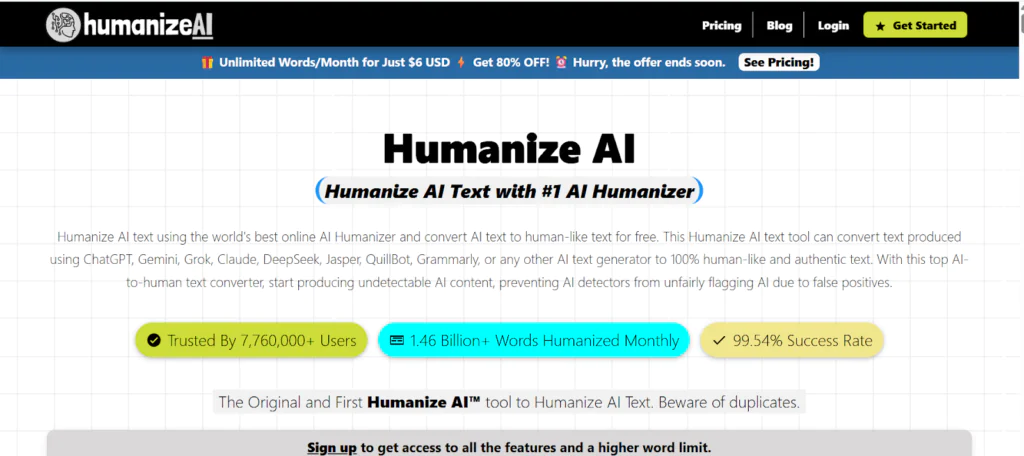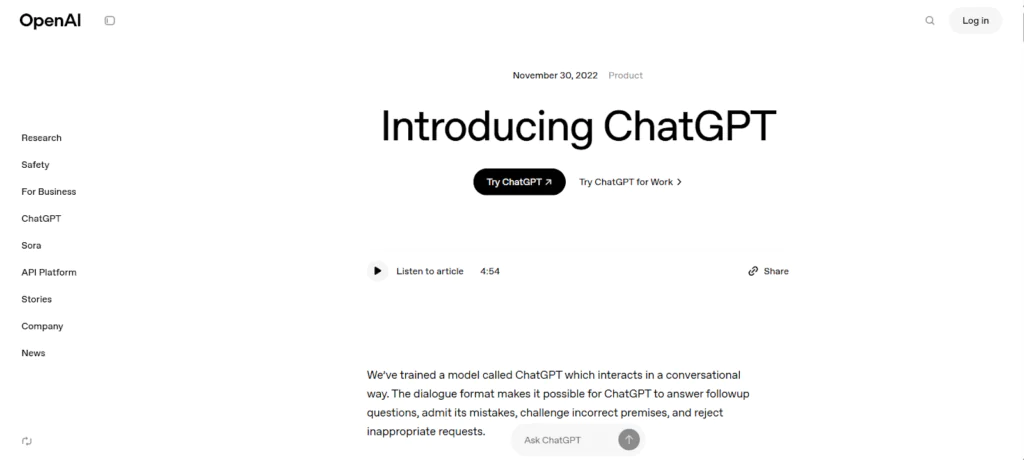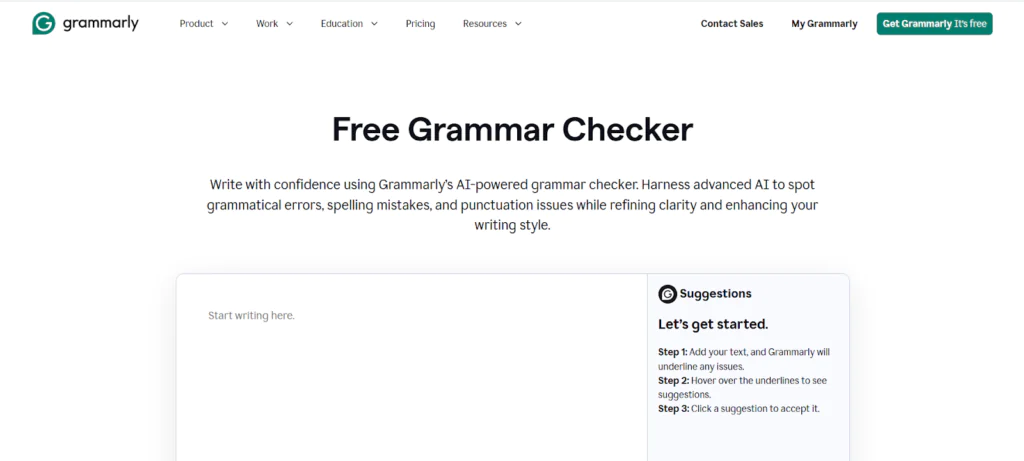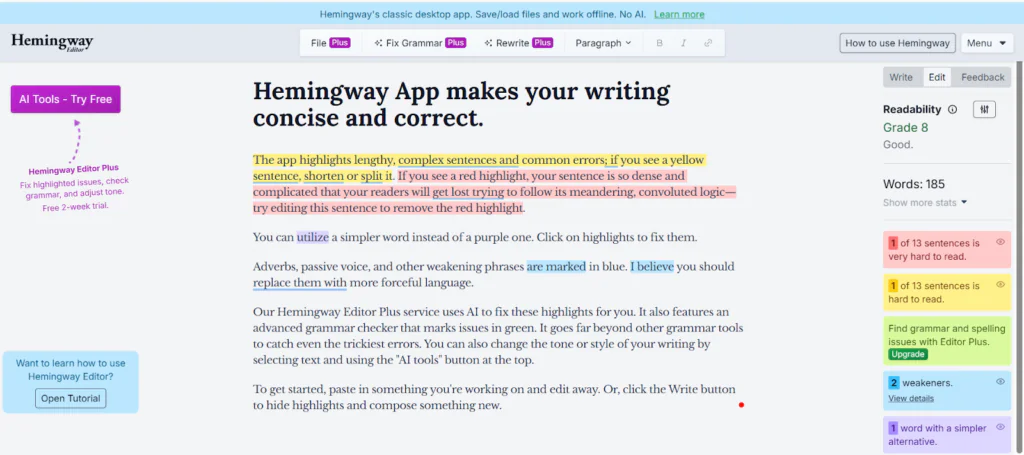News
The Role of Humanized AI Content in Guest Posting Success

Let’s talk honestly for a moment. You would have read the majority of guest posts online and find them easily forgotten because some are obviously AI-written and have not been edited. Others contain so many buzzwords that, after two phrases, your eyes can’t take it more. The worst is that, as a human, the AI didn’t truly think through the writing; it was obvious.
However, the truth is that AI is not the issue. The way we use it is the issue.
You need to be better than anyone else in making your guest posts appear as though they were written by a genuine person if you want them to be accepted, read, and spread. Not merely “good enough,” but actually interesting, as if you were having a coffee conversation with a friend.
Why Most AI-Generated Guest Posts Fail (Fix it Now)
1. Editors Quickly Identify Robotic Writing
When was the last time you came across a guest post that didn’t feel right? Perhaps the sentences were overly ideal. Maybe it had no true personality. Or possibly it simply sounded like all the other generic posts that are out there.
Editors see this only! They receive an overwhelming volume of submissions, and most of them adhere to the same stale formula:
- Tone that is too formal (“It is imperative to consider…”
- A structure that is predictable (introduction, three points, conclusion)
- No distinct viewpoint
- Humanizer AI will help with the success of guest blog posts by refining content.
The ones that stand out are the ones that sound like a human. They have quirks. They don’t follow the “rules” perfectly.
How to fix it:
- Read aloud from your draft. Rewrite it if it sounds like a corporate training manual.
- Do think like that you are discussing the subject with a friend. Would they lose consciousness? Make adjustments.
- Include minor flaws, such as sentence fragments, colloquial language, and, if appropriate, comedy.
2. Perfectly polished content is not trusted by readers.
Writing that is overly neat has a strange effect that makes it seem artificial. People trust that content which sounds like it was created by a human, not a machine.
This implies:
- Utilizing contractions (“don’t” rather than “do not”)
- occasionally violating grammar norms by beginning sentences with “And” or “But”
- AI doesn’t naturally display your personality, even if it’s a touch rough around the edges. It looks forced.
3. Google Rewards Engagement, Not Just Keywords
A few years ago, all you had to do was add keywords to a post, add some subheadings, and be done. But now no more.
Google has more intelligent algorithms. They’re trying to find:
- Low bounce rates, or the percentage of visitors who stay on the page
- Social shares (since it’s helpful, actual people share it)
- Natural backlinks (other websites citing it due to its quality)
If your content sounds like it was written by a robot, none of that will occur..
How to Take AI Content from “Generic” to “Can’t Stop Reading”
Step 1: Don’t use the final draft; instead, use AI to do the heavy lifting.
AI is fantastic for:
- Overcoming the blank-page phenomenon
- Creating preliminary outlines
- Putting together research quickly
However, if you stop there, you’re ignoring the human touch, which is the most crucial component.
Poor AI Results:
“The key to successful guest posting is producing excellent content that adds value for the reader.”
Version with Humanization:
“You see, no one is reading guest blogs because they enjoy business jargon. Write as though you were explaining something to a friend rather than a group of executives if you want them to genuinely care.”
Step 2: Write Like You Talk
When it comes to AI material, this is the most common error people make. They don’t make it sound natural by editing.
- This is a brief test:
- Out loud, read your draft.
- Is it something you would genuinely say in a conversation?
- Write it again till it does, if not.
Robotic: “It’s also clear that backlinks are still essential for SEO success.”
Human: “Backlinks are still important. However, this is what most people overlook.
Step 3: Add Personality (Even If It Feels Uncomfortable at First)
The majority of AI content is exceptionally neutral. However, readers relate to genuine viewpoints rather than diluted interpretations.
Try:
- Joke: “SEO ‘gurus’ love to make things too complicated. Breaking: It’s not that deep.
- Hot takes: “The majority of advise from guest posts is utterly nonsense. This is what genuinely works.
- Personal anecdotes: “I once wrote a “perfect” guest post for three weeks.” Within two hours, it was rejected. This is the reason.
Step 4: Break Some Grammar Rules (On Purpose)
Writing with flawless grammar is boring. Just as humans don’t talk in perfect phrases, neither should your writing.
- For emphasis, use sentence fragments.
- Put “And” or “But” at the beginning of sentences.
- If appropriate, use slang (“This strategy? The chef’s kiss.”)
Typical Errors That Make AI Content Clearly Visible (And How to Avoid Them)
- Releasing the initial draft without revisions: AI provides you with a starting point rather than a final product. It will sound like every other generic post out there if you don’t edit.
- Fix: Edit as though you were preparing a TED Talk. Trim the fluff. Put your voice in there.
- Stuffing Keywords Until They Sound Unnatural: SEO is important, yes. No, you shouldn’t sound like a robot spewing out keywords in your message.
- Correct: After writing organically for a while, go back and add keywords where appropriate.
- Ignoring Original Studies or Findings: AI can compile current information, but it won’t provide you with:
- Insider information
- New case studies
- Contrarian viewpoints
- Fix: Include a statement that only you can make.
Tools That Help Without Killing Your Voice
Let’s talk about the tools everyone recommends but rarely explains how to use properly. They’re more like training wheels that help you keep your balance while you learn to ride.

Sometimes, even with excellent ChatGPT cues, AI content still seems a little strange. HumanizeAI.io can help with that.
What it does differently:
- Eliminates AI “tells”—the uncomfortable, excessively formal expressions that AI adores (“In today’s digital landscape…”)
- Adds natural flow by using contractions, breaking up lengthy lines, and giving the impression that it was written by a human.
- keeps your meaning intact. It preserves your original intent, in contrast to some tools that merely shuffle words.
The best use case is to use this before modifying your AI draft. It eliminates the robotic feel, allowing you to concentrate on enhancing personality rather than correcting basic readability.
ChatGPT Custom Instructions

The majority of people simply type “write me a blog post” and go to sleep. A huge error. It will sound generic and bizarre, much like asking a stranger to write your autobiography.
This is what genuinely works:
- Let it know who you are: “I’m a marketing director with 10 years experience in SaaS”
- Describe your speech pattern: “I use sarcasm when making points, avoid corporate jargon, and prefer short sentences”
- Provide examples. “Write like this: ‘SEO isn’t rocket science, despite what the ‘gurus’ want you to think'”
Pro tip: You will require less modification later if you are more explicit. It’s the difference between a coloring book page that you just fill in and receiving a rough sketch.
Grammarly’s Tone Checker

Grammarly is excellent at fixing commas, but it’s not the only use case for it. Having a friend who is brutally honest and lets you know when you sound fake is similar to having a tone detector.
Why this is important
- When you inadvertently go to “business formal” mode, it catches
- Sentences that are too complicated are flagged because nobody speaks that way.
- prevents you from sounding like three different people by assisting in maintaining consistency.
The catch is that you shouldn’t allow it to intimidate you into being uninteresting. For effect, you may occasionally WANT to break the rules. It should be used as a guide, not as a rule.
Hemingway App: Your Bullshit Filter

This is where you paste that AI draft and see it glow like a red-and-yellow Christmas tree. That’s good since it indicates that it’s functioning.
What it actually does:
- identifies phrases that would make a college professor—and readers—feel drowsy.
- points out the adverbs you use too much, such as “very” and “really” in relation to you.
- demonstrates when you’re being overly complex.
The Big Truth: Poor Writing Won’t Be Saved by AI
This is something that no one wants to acknowledge but that everyone must hear:
AI Is Similar to a Poor Helper
It will follow your instructions exactly, even if they are incorrect. The way we utilize the tool is the issue, not the instrument itself.
Genuine conversation
- It will produce ambiguous outcomes if you give it unclear instructions.
- You will sound like everyone else if you don’t modify.
- You will lose your distinct voice if you become totally dependent on it.
What You Can’t Do With AI
- Possess real-world experiences to draw from
- Create unique viewpoints (it merely restates existing ones).
- Recognize context and subtleties like a human
Where AI Actually Helps
- Research Summaries: A quicker alternative to reading ten articles by hand
- Writer’s block provides you with something to consider and work on.
- It’s the beginning, not the end, that’s where the magic happens.
The Real Goal of Guest Posting
If we forget why we’re doing this, all of this tool talk ultimately misses the mark:
- Connection Is More Important Than Content
- Because articles are so well optimized, people don’t share them. They share them because: They taught them something valuable; They made them feel something
- The essay reminded them of themselves in certain ways.
- Being human is your superpower.
AI cannot:
- Share the tale of your greatest failure.
- Tell us about your strange industrial annoyances.
- Make jokes that your audience will understand.
- The human behind the words is what makes writing worthwhile.
Final Thought
You are now prepared to advance in your writing career:
- Set up those customized instructions in ChatGPT right away.
- Run your next draft through Hemingway before publishing.
- You’re on the right track if, when read aloud, it sounds like a real discussion.
Remember that the purpose of the tools is to supplement your voice, not to replace it. Now write something that sounds like you, but write it faster and more efficiently.

-

 Resources4 years ago
Resources4 years agoWhy Companies Must Adopt Digital Documents
-

 Resources3 years ago
Resources3 years agoA Guide to Pickleball: The Latest, Greatest Sport You Might Not Know, But Should!
-

 Resources8 months ago
Resources8 months ago50 Best AI Free Tools in 2025 (Tried & Tested)
-

 Guides2 years ago
Guides2 years agoGuest Posts: Everything You Should Know About Publishing It
